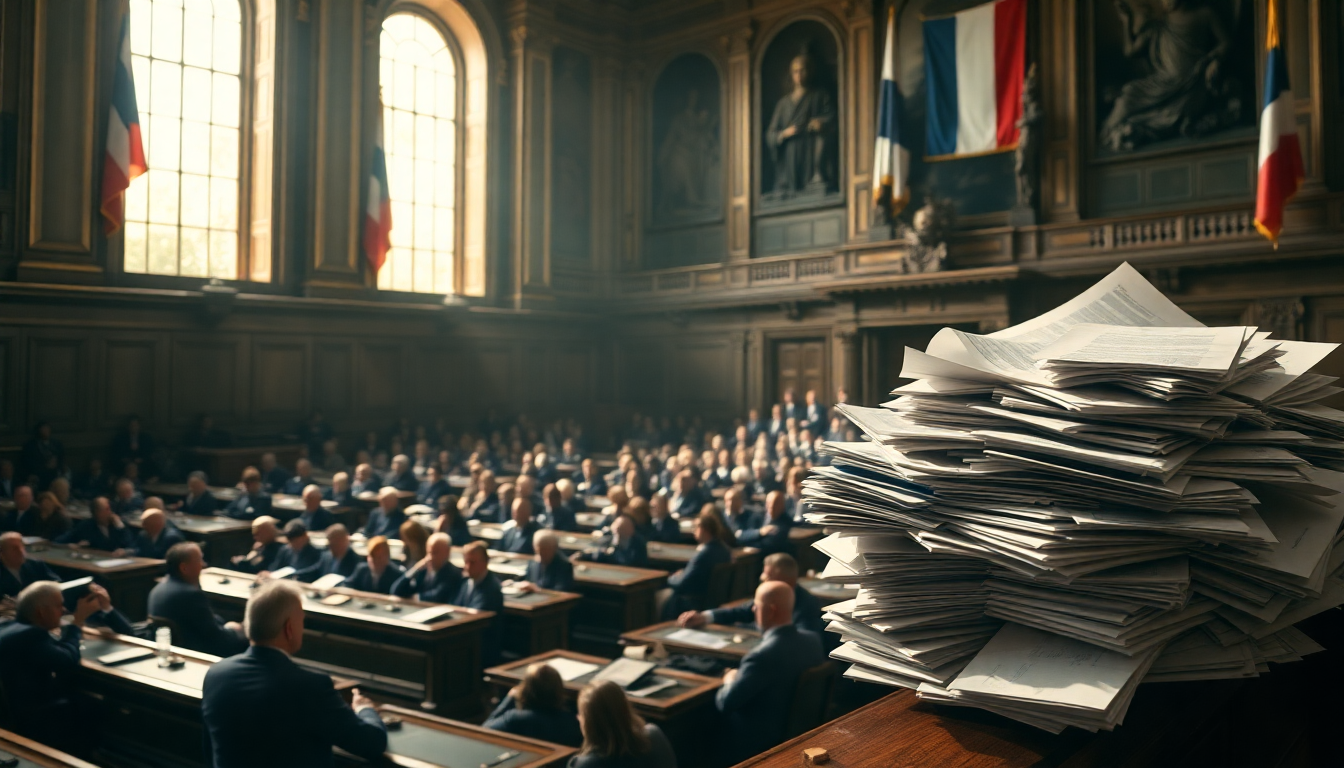Table of Contents
The political scene in France is heating up, especially as Prime Minister François Bayrou navigates some serious challenges to his leadership. Just recently, he managed to survive a no-confidence vote, but not without the stress of a divided parliament and looming budget discussions. So, what does all this political maneuvering mean for the governance in France moving forward? Let’s dive in.
What Happened with the No-Confidence Vote?
On Tuesday, things got a bit dicey for Prime Minister François Bayrou as he faced a no-confidence vote initiated by the center-left Socialist Party. This move followed unsuccessful discussions about retirement reforms, shining a light on the growing discord within the French parliament. Many expected the motion to fail, but the National Rally’s choice to abstain left Bayrou’s fate hanging by a thread.
This no-confidence vote, one of eight filed against him, attracted quite a bit of attention due to the high stakes involved. It underscored the fragility of the current government, with the far-right National Rally holding significant sway over whether Bayrou could maintain his role. Now, the immediate future of the government seems to dangle on the National Rally’s decisions, especially as they’ve hinted at plans to challenge Bayrou again during the upcoming budget discussions.
As the political climate intensifies, the implications of this vote resonate within the broader context of governance in France. Bayrou’s leadership is not only under fire from opposition parties but also from a public increasingly weary of economic strains and political indecision. How will he respond?
The Economic Backdrop and Budget Challenges
Right now, the French government is wrestling with a hefty budgetary challenge, aiming for €40 billion in savings to tackle the growing deficit. Achieving this ambitious goal is no easy task, especially with a deeply fractured parliament. Can they find common ground on fiscal policies? The government is set to unveil its policy proposals soon, gearing up for a lively parliamentary debate this fall.
Public sentiment plays a crucial role here. Far-right leader Marine Le Pen has been vocal in her criticism of the government’s handling of economic issues, claiming that everyday citizens are bearing the brunt of these decisions. This discontent could spark further political maneuvering as parties prepare for the budget talks ahead.
The tug-of-war between the government’s financial objectives and the opposition’s resistance marks a pivotal moment for French politics. As Bayrou’s administration seeks to navigate these rocky waters, the outcome of the budget discussions could either solidify his position or create even more turmoil for his leadership.
What Lies Ahead for Bayrou and the French Government?
As the dust begins to settle from the no-confidence vote, the future of Prime Minister François Bayrou remains uncertain. The far-right National Rally seems to be playing the long game, possibly waiting for the budget discussions to launch another challenge against him. The political landscape is fraught with risk, and any misstep could trigger a renewed push for his ousting.
The coming months will be crucial as the government gears up to present its policy proposals and engage in spirited parliamentary debates. These discussions will not only shape Bayrou’s political future but also the overall trajectory of France’s economic policy. Successfully navigating these challenges could bolster Bayrou’s standing and provide him with the stability he desperately needs to govern effectively.
In conclusion, the interplay of political power, economic necessity, and public sentiment will define the path of François Bayrou’s leadership. With France standing at a crossroads, the outcomes of upcoming legislative actions will be pivotal in shaping the nation’s political and economic future. Are we ready for what’s next?


